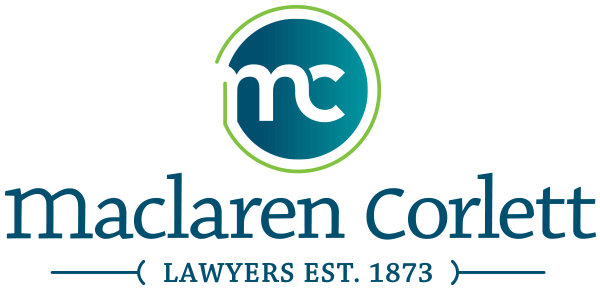So You’ve Been Appointed an Estate Trustee (aka Executor), Now What? – Part 4
Reminder: this series of blog posts assumes the deceased died with a Will. Also, keep in mind that the normal caveat applies: this information only applies to estates administered in Ontario and should be used as a guide only! Speak with a lawyer about your specific situation, as every case is different.
Now that you’ve begun administering the estate, you need to make sure that you’re keeping an up-to-date and accurate accounting of all the estate funds that are deposited and withdrawn from the estate. The first step in this process, as described in Part 3 of this series, is the opening of an Estate bank account. Once this account is open, you should consolidate all of the deceased’s accounts (that weren’t held jointly with anyone else, thereby keeping them out of the estate itself) into the Estate bank account.
What is an estate accounting? It’s actually very simple; tedious maybe, but simple. It’s a record of the transactions through every single bank account that the deceased owned at the date of death, and any bank account opened by the estate after death, as well as a record of the value of any investment accounts or other estate property and their disposition.
Begin a document for each of the deceased’s bank accounts, as well as the estate account, with the following columns:
Account Name, Account Number, Branch location (if available)
| Date |
Details |
Deposits |
Withdrawals |
Balance |
The first date recorded for the deceased’s accounts should be the date of death and the balance in the account at that date. Keep track of every single transaction, even those as small as $0.01. Ultimately, there should be a clear record of the deceased’s personal accounts being monitored, transferred to the estate account, and closed. The final record for each account should show a balance of $0.00 as the account is closed. You should eventually end up with only one account still active: the estate account. This account should show deposits from all the personal accounts, all expenses made on behalf of the estate, and the distributions made. Ultimately, once the estate has been fully distributed and all expenses of the estate have been paid, this account should also have a balance of zero and be closed.
Why do you have to keep such a detailed accounting? As the Estate Trustee, you have a duty to account to the beneficiaries for every step of the process of the administration of the estate. You are the ‘trustee’ of the estate, meaning that you have been given the power to administer the estate, solely for the purposes as set out in the Will. There is a process called “Passing Accounts” whereby the Court reviews and approves your estate accounts. While not every Estate Trustee is required to do this, it is best that you keep detailed records from the start, so that you are fully prepared if you are required to pass accounts.
Even if you’re not required to pass accounts before the Courts, you are required to provide the beneficiaries with a detailed accounting. If the beneficiaries feel that the accounting provided is insufficient or questionable in some way, they may request a passing of accounts anyways. This is why one of the most important things you can do as an estate trustee is ensure your records are detailed, clear and up-to-date.
Remember, as with all the previous steps, your estates lawyer is a valuable asset and can help you work through the estate accounting.
Next time: Taking care of taxes and closing the estate.



